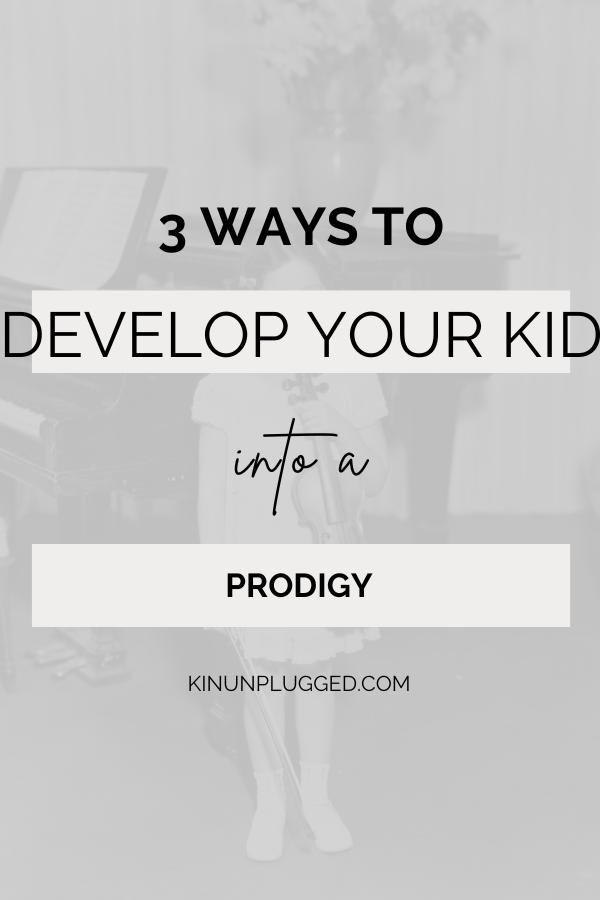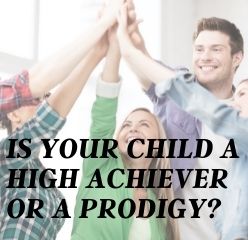We all want to give our kids the best opportunities that we can afford to give them. We want to be able to open their eyes to as many experiences as possible. Regardless of what an IQ test says about your child, you believe that they are smart and can see the potential in them. Some kids are born with the ability to see opportunities in every experience while others cultivate that ability with age. That brings us to the prodigy vs. high achiever debate. Child prodigies and high achievers do have some things in common. It may be helpful to first look at how best to describe each.
Who is a prodigy?
I would describe a prodigy as a child who is born with the ability to understand things that children their age and maybe even older are not yet able to understand. A prodigy may also be defined as “a child who, before the age of 10, performs at the level of an adult professional in some cognitively demanding field”.
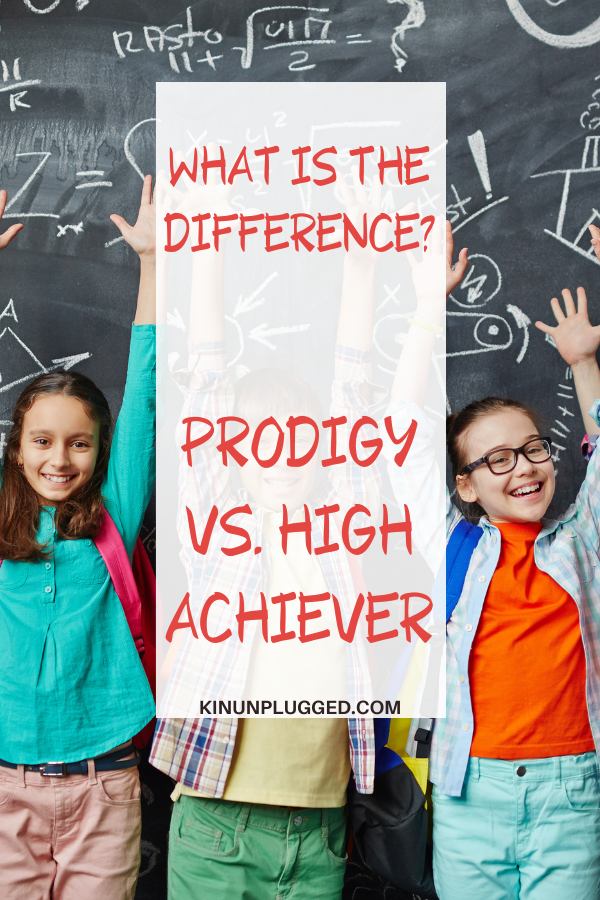
Who is a high achiever?
A high achiever does not rely on their natural ability to understand concepts but rather pushes themselves to gain insight and understanding into as many areas of life as possible. A high achiever has “a strong desire to communicate and make a progress of their own learning.”
You may also like: The Principles of Attachment Parenting
What are some characteristics of high achievers?
The characteristics of high achiever students include the following nine:
- A need to become masters at areas of their choosing
- Hunger for the rewards that come with their great accomplishments
- An inclination to put hard work ahead of emotion
- They realise the need to design their future success
- Flexibility and an effort to adapt to new environments and situations
- Sensitivity to being criticised and failing
- Confidence in, but not fully reliant on, their abilities
- They never stop learning. They are always hungry for more knowledge
- An unyielding optimism
Consider a gifted or talented student you know and, as compared with a prodigy, you are sure to find that they exhibit the majority of these qualities.
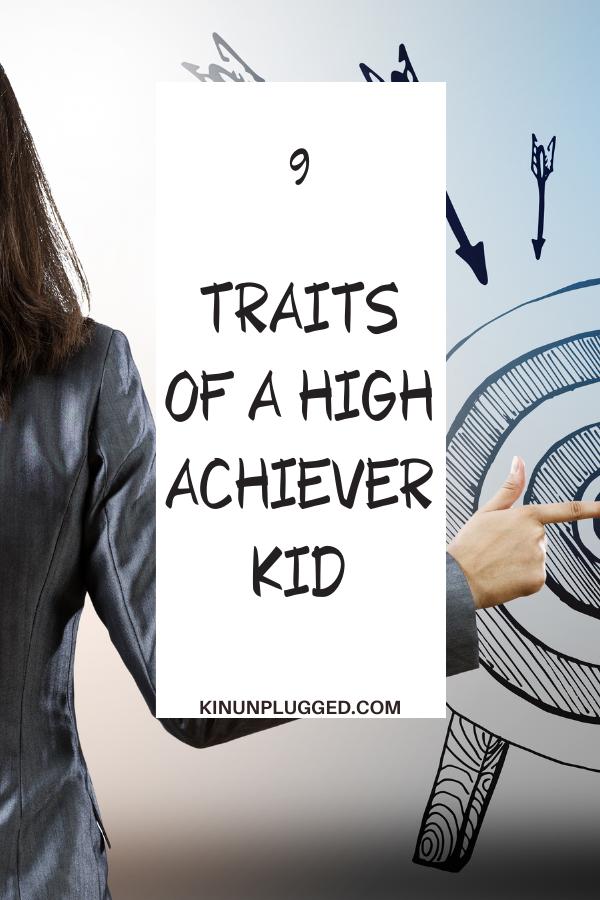
Why are gifted and talented students high achievers?
Well, to be this is not always the case. As with prodigies, gifted and talented children may rely so much on their gifts and talents that they do not put in the hard work that high achievers would.
It is easy for gifted children to be so unmotivated at school due to a lack of challenge that they fail to put any effort into their work. Even for a gifted student, if they do not put any effort in, it could start to show in their grades.
However, both gifted children and high achievers will face the same sorts of situations in the world and specifically in the school setting. It is how they handle those situations that set a high achiever apart from a student who is gifted but not a high achiever.
A child prodigy, in the same vein, would also handle problem solving in a different way. Especially as they get older. In the child prodigy vs. high achiever comparison, the child prodigy is an interesting topic because of how they tend to change with age.

Characteristics of a child prodigy
Research has found three classic characteristics of child prodigies:
- Taking on progressive challenges. Child prodigies recognize a challenge and are happy to take them on even if they know that those challenges may be ongoing.
- Continuous internal motivation. They are able to look within for motivation rather than search for inspiration or motivation externally only.
- An unstoppable and high focus of attention. They have an ability for single-mindedness when it is time to focus on a specific endeavour.
All these three characteristics make it possible for a child prodigy to become masters of areas of their choosing and also their ability to learn very quickly.
What is the IQ of a prodigy?
Interestingly, this varies across the board. Child prodigies do not always have the highest IQ among their peers. There is no set range of high IQ scores that you would expect a child prodigy to fall within.
Why do prodigies fail?
Depending on your definition of success, you might be able to think of some famous child prodigies who managed to achieve recognition later in life. For example, Mozart, Pablo Picasso, Stevie Wonder and Blaise Pascal. Can you think of a famous child prodigy? Did they turn out just as you expected? Are they on the path to greatness even after growing past their childhood years?
If you are struggling to think of a child prodigy who today is doing just as amazing as everyone expected them to be doing, it is not surprising. Not only in terms of wealth but even simply in terms of having become masters of their craft (or any craft). It is because prodigies tend to fail or fall below expectation unless they are steered in the right direction.
Can I make my child a prodigy? (Nature vs. Nurture)
Considering the differences between a prodigy vs. high achiever, parents can try to ascertain the kind of child they have. You may not be able to determine exactly whether your kid is a high achiever or a prodigy but you can certainly offer them the tools necessary to cultivate the right qualities in them.
You can only “make” your child a prodigy if they have the inclination towards that anyway. If you notice any of the three child prodigy characteristics mentioned above in your child, you can focus on nurturing those characteristics.
For example, you can teach them how to or encourage them to set goals and create action plans in order to take on the progressive challenges they face. You can also teach them to constantly remind themselves of the reasons why they are chasing the goals that they chase in order to find motivation within themselves. Finally, as a parent, you can cheer them on and encourage them to hone in on specific areas that they want to master at a time rather than spread themselves too thin.
In my view, you are better off focusing on how to make your child a high achiever than how to make them a prodigy.
Providing your child with the opportunities to achieve as high as they aim is more worthwhile because you would be equipping them with the ability to succeed at whatever they desire throughout their lives. These are three simple ways to direct your child in the way of high achievement.
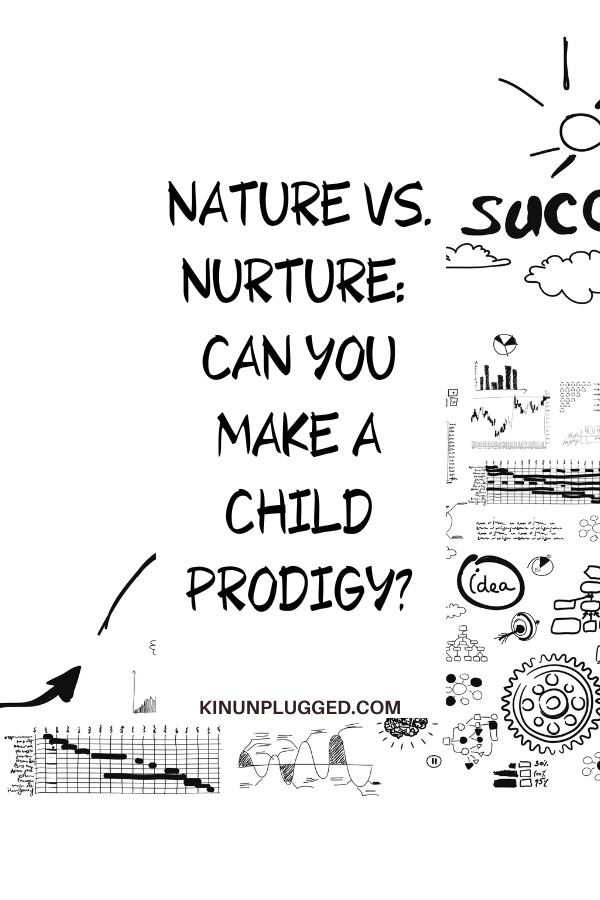
How to turn your kids into high achievers
- Give them responsibility early. This gives them the opportunity to see how it feels to have to do things for themselves everyday and in a certain way. It teaches them commitment and gives them a rewarding feeling when they are able to tick off their assigned tasks each day.
- Push them to take calculated and reasonable risks. They need to know that failure can be an option and will not mean the end of the world. In the process, they will also learn how rewarding it can be when taking a sensible risk pays off.
- Recognise their efforts. Always note their successes and praise them for the efforts they put into their work. Do not just show excitement when they win. Show how proud you are of them for taking steps towards achieving anything as well. They need to know that their self-worth is not tied to their achievements alone.
